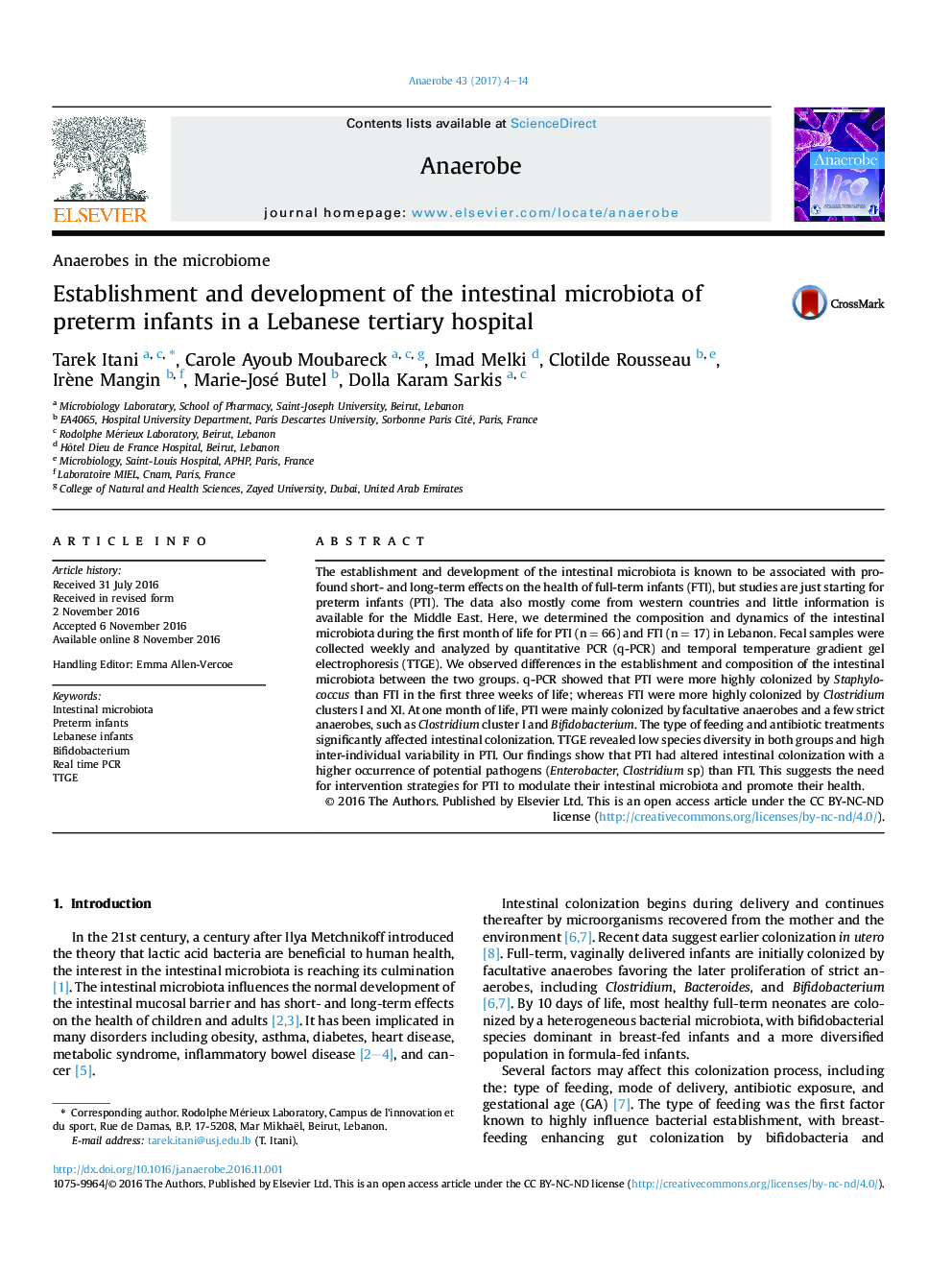| کد مقاله | کد نشریه | سال انتشار | مقاله انگلیسی | نسخه تمام متن |
|---|---|---|---|---|
| 5671270 | 1592821 | 2017 | 11 صفحه PDF | دانلود رایگان |
- Differences were observed in the establishment and composition of the intestinal microbiota between preterm and full-term infants.
- Preterm infants have an altered intestinal microbiota and a delay in colonization by some anaerobes.
- Lebanese preterm and full-term infants were highly colonized by Bifidobacterium, a genus known for its beneficial effects.
- Types of feeding and antibiotic treatments had significant effects on intestinal colonization in preterm infants.
The establishment and development of the intestinal microbiota is known to be associated with profound short- and long-term effects on the health of full-term infants (FTI), but studies are just starting for preterm infants (PTI). The data also mostly come from western countries and little information is available for the Middle East. Here, we determined the composition and dynamics of the intestinal microbiota during the first month of life for PTI (n = 66) and FTI (n = 17) in Lebanon. Fecal samples were collected weekly and analyzed by quantitative PCR (q-PCR) and temporal temperature gradient gel electrophoresis (TTGE). We observed differences in the establishment and composition of the intestinal microbiota between the two groups. q-PCR showed that PTI were more highly colonized by Staphylococcus than FTI in the first three weeks of life; whereas FTI were more highly colonized by Clostridium clusters I and XI. At one month of life, PTI were mainly colonized by facultative anaerobes and a few strict anaerobes, such as Clostridium cluster I and Bifidobacterium. The type of feeding and antibiotic treatments significantly affected intestinal colonization. TTGE revealed low species diversity in both groups and high inter-individual variability in PTI. Our findings show that PTI had altered intestinal colonization with a higher occurrence of potential pathogens (Enterobacter, Clostridium sp) than FTI. This suggests the need for intervention strategies for PTI to modulate their intestinal microbiota and promote their health.
Journal: Anaerobe - Volume 43, February 2017, Pages 4-14
